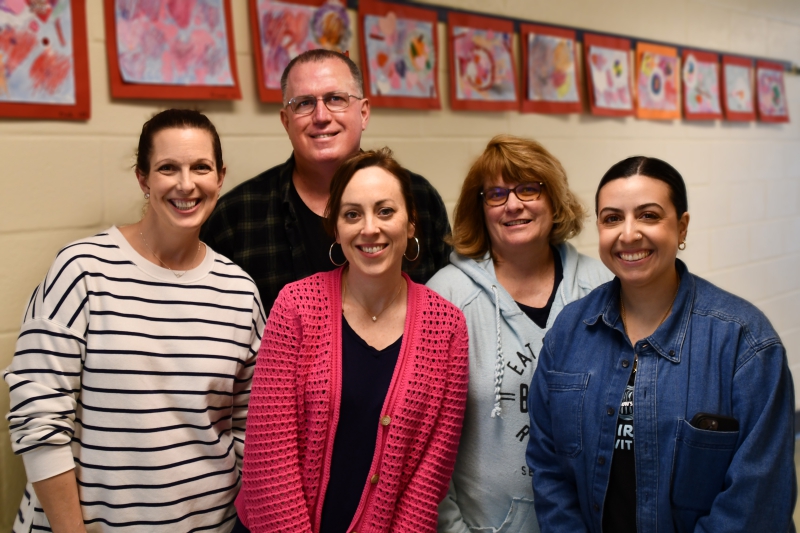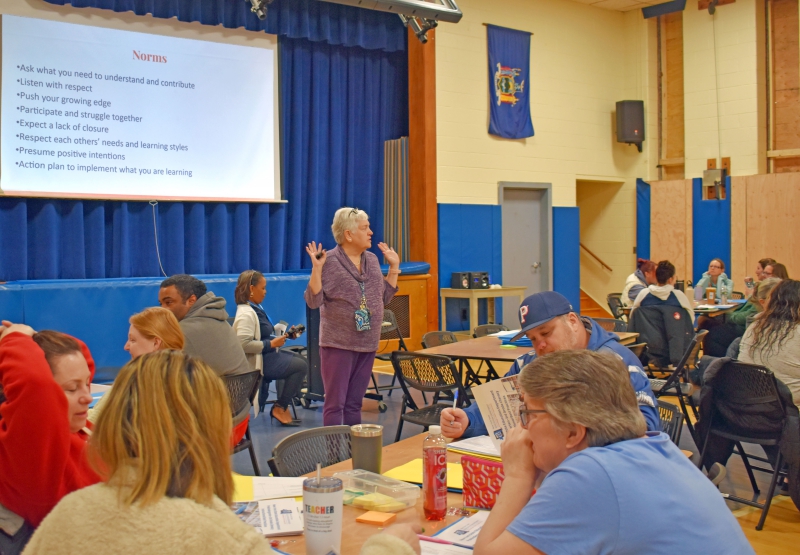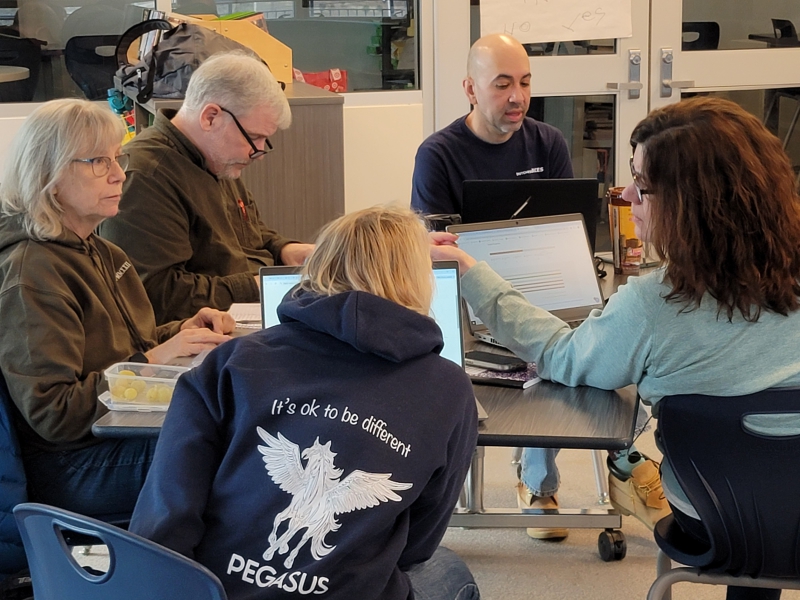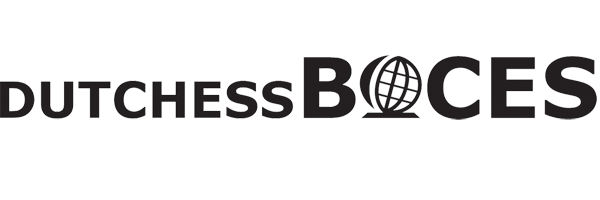 Dutchess BOCES staff spent Friday learning new ways to help students succeed, grow their own job skills and move the agency forward.
Dutchess BOCES staff spent Friday learning new ways to help students succeed, grow their own job skills and move the agency forward.
Superintendent’s Conference Day brought staff together in large and small groups for workshops specific to their roles led by peers, administrators and specialists live and virtual.
Science of Reading
At SPC, teachers and teaching assistants attended NYS Literacy Briefs and Instruction Best Practices led by Patti Davis, staff specialist with the Regional Partnership Center and Silvia Lloyd, professional development specialist in Dutchess BOCES’ Educational Resources department.
 The training offered an overview of NYSED’s Science of Reading, with an emphasis on best practices including explicit and direct instruction in phonics, phonological awareness, vocabulary development, fluency, comprehension and oral language. Participants had an opportunity to engage in small group discussions and delve into how to apply the framework to the existing curriculum. Each participant received a resource packet including some briefs and the NYSED’s Blueprint for Improved Results for Students with Disabilities.
The training offered an overview of NYSED’s Science of Reading, with an emphasis on best practices including explicit and direct instruction in phonics, phonological awareness, vocabulary development, fluency, comprehension and oral language. Participants had an opportunity to engage in small group discussions and delve into how to apply the framework to the existing curriculum. Each participant received a resource packet including some briefs and the NYSED’s Blueprint for Improved Results for Students with Disabilities.
An important point touched on was how general education practices can be adapted to best support special education students.
“Working through the Science of Reading Training as a professional learning community and sharing high-leverage practices always sparks new ideas and ways of doing things,” shared SPC Principal Melissa Murphy. “I think the most important take-away from today was the reminder that as educators, we are also learners,” she added.
Data driven instruction
Resilience Academy and Salt Point Center staff dove into data collected from the two iReady diagnostics done this year.
 The software provides in-depth information on each student’s performance across the various domains covered in English and math so that teachers can praise student success and identify where targeted instruction is needed. iReady also provides instructional materials for teachers to use with the students.
The software provides in-depth information on each student’s performance across the various domains covered in English and math so that teachers can praise student success and identify where targeted instruction is needed. iReady also provides instructional materials for teachers to use with the students.
Daniel Lynch, a teacher at Resilience Academy, found the session useful.
“It compiles the information from the assessments and helps you look at it and use it to plan moving forward,” said Lynch, who started teaching mid-year. “I was able to utilize one of my colleagues who had access to previous test data to get a bearing on where they are.”
Literacy in the Trades
Taught by Educational Resources’ Assistant Director Derek Schuelein, this workshop explored high-impact instructional practices and how they apply to career and technical education. Schuelein noted that reading requires explicit instruction as children’s brains are not hardwired to do so.“We cannot sit a child down, immerse and surround them with books for 10 years and expect that somehow they’re going to passively pick up reading,” Schuelein said. “We have to directly teach them.”Trade Electric teacher Richard Petschko and Cosmetology teacher Nicole Laino noted that while some students can read the words from a technical book, they don’t comprehend it and understanding what they read is vital so they can apply it to the trade.TV and Film Production teacher Justin Brown agreed. “Without a script, without something that is written, we don’t have anything,” Brown said. “I can’t just send them out and say ‘Go shoot the sky’ because it has to have some sort of content.”\
Greeter training
Our greeters and receptionists are the first line of security and also the first point of contact and face of the school or building they work at. This training brought experienced and new staff members together to learn about the various equipment, software and situations they might face.
One exercise focused on the power of observation. Allison Baldasare, office manager for Educational Resources, led the training, and had someone walk quickly past the gathered group. Then she asked them to recall key things about the person: What were they wearing, what color clothes, did they have glasses? These skills are important not only for being able to provide information should there be a concern about a visitor, but also if a student should leave the building without permission.
Language Acquisition through Motor Planning
Speech-language pathologists, occupational therapists, physical therapists and teachers of the deaf learned about a therapeutic approach to foster language for students using augmentative and alternative communication.
The Language Acquisition through Motor Planning (LAMP) Words for Life offers individuals the chance to put words together through a keypad to communicate with others.
David Kay, M.Ed, OTR, led an exercise with individuals in pairs of two using the keypad. He started with the word guacamole and had individuals add words with the keypad to create a sentence.
“I thought it was excellent,” said Pat Hart, speech language pathologist at Dutchess BOCES. “I actually have a student who recently came to me with this system and I didn’t know how to use it, so I learned a lot.”
Other sessions
Throughout the day, office staff learn about the agency’s new on-site catering service and how to place orders, nurses were given time to review the contents of their Ebags so they would know what they contained in case of emergency, teachers of the visually impaired gathered in one spot to go over equipment the agency has available, teaching assistants, aides and crisis team members learned about reframing behavior and there were also team-building exercises for all.
